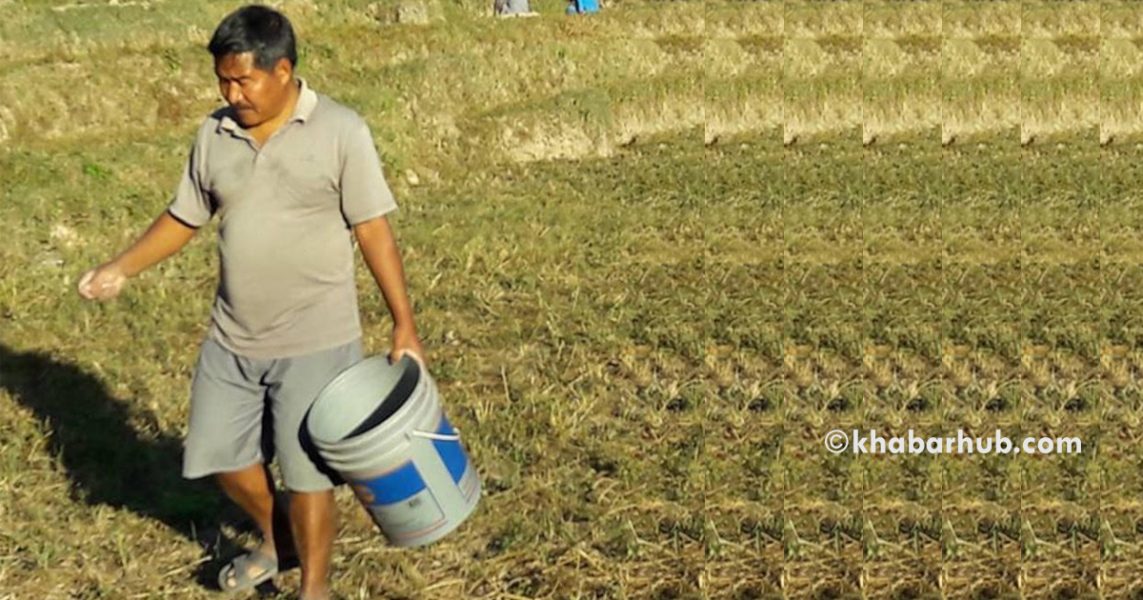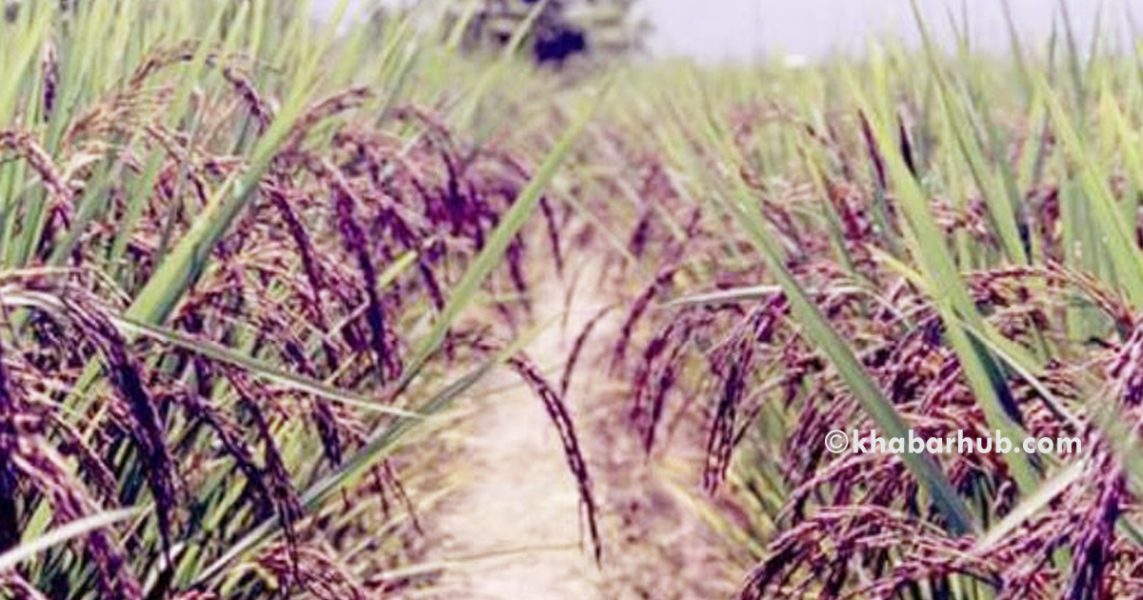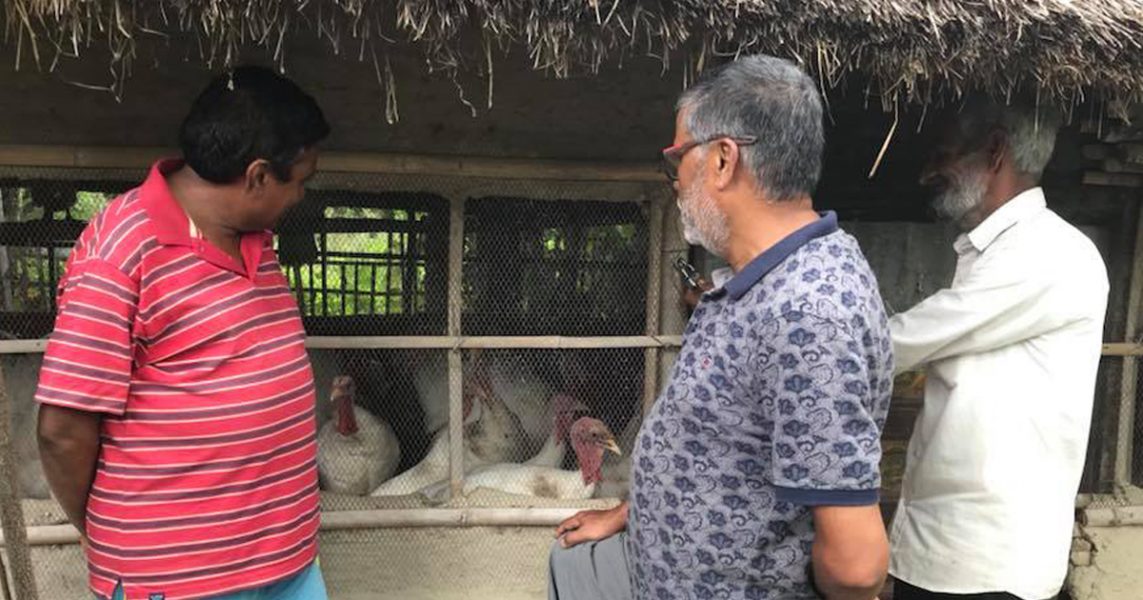KATHMANDU: A former guerilla, a prominent leader in the then CPN-Maoist party, and a former minister, Lokendra Bista emitted a distinct identity in the party. In 2007, Bista created history by entering the interim parliament wielding a gun, growled of possessing an arm, labeled parliamentarians as “wolves and pigs”, and threatened of raining blows on them.
Despite having prospects for crucial position in politics, he now wants to become an inspiration to many, especially youths, through farming. “I want to give the message to the youth of this country that agriculture is a respectable profession,” he quips.
His resolute contribution during the decade-long insurgency helped him to win the first Constituent Assembly elections in 2008. Thereafter, he led the Ministry of Tourism and Civil Aviation in 2011, and got elected as a member in the party’s Standing Committee – the most powerful body in a communist party.

Bista, however, holds a different identity now. For him, agriculture has been a passion. He had not even in the wildest of his dreams thought that he would be quitting active politics to join agriculture. “In fact, I had never thought of quitting active politics,” he says, adding, “The notion that politics would only change the society was wrong.”
Despite having prospects for crucial position in the politics, he now wants to become an inspiration to many, especially youths, through farming. “I want to give the message to the youth of this country that agriculture is a respectable profession,” he quips.
Currently, besides cultivating black rice, a good source of fiber, in Bhakundebesi of Kavre, Bista, who prefers to work in the fields himself, has expanded his agriculture business in other areas, including Sankhu of Kathmandu where he cultivates black rice. Now, Bista is working on yet another project at Bijauli of Dang where he is planning to grow dragon fruit, a fruit equipped with many health benefiting properties that is full of antioxidants. Most probably, the fruits will be ready to be marketed after three years, he informed.

“My plan is to produce organic products, create employment opportunities and inspire youths to get into this business rather than going abroad as migrant workers,” Bista told khabarhub. He employs around 140 people in a season.
However, an enthusiastic Bista is disenchanted with the trend of the out migration of Nepalese youths. “Why should someone go abroad to work in an unfavorable environment when there are opportunities in Nepal itself?” he queries while drawing the government’s attention. He laments at the government’s apathy towards Nepalese youth who otherwise would want to lead a dignified life back home.
Often portrayed as a member of former Prime Minister Girija Prasad Koirala’s coterie, Gupta gave up active politics after being convicted of corruption charges.
Bista is not the only ‘elite’ to join agriculture business by quitting active politics. Jay Prakash Gupta, once an influential leader of Nepali Congress, too, is involved in agriculture-piggery and fishery in Saptari district.
Often portrayed as a member of former Prime Minister Girija Prasad Koirala’s coterie, Gupta gave up active politics after being convicted of corruption charges.
“I am doing fine now,” he says with a sense of satisfaction.
He claims his active involvement in agribusiness has encouraged several youths in the district to get into agriculture rather than flying overseas for employment. Gupta, a former Minister for Information and Communications, suggests the government to invest in agriculture to discourage youths from flying abroad.

Deepak Prakash Baskota is another name in the list. Baskota has been engaged in agriculture and cooperative business for the past 25 years. A Nepali Congress and former minister of State for Home Affairs Baskota is an established name in tea production.
Ask anyone his name in his home district Pachthar, and pat comes the reply, “Yes, he is the owner of Kanchanjangha Tea Estate, which is one of the highest producers of orthodox tea.” Besides, Baskota is involved in promoting the Nepali tea as a Himalayan Nepali tea into the international arena. His dedication to agriculture has inspired a lot of youths, who have started their own agribusiness. Baskota, however, lambasts the government for encouraging youths to seek overseas employment by failing to prioritize the agriculture sector.
“Nepalese tea is the best tea because of its climatic condition,” he claims. He suggests that it is high time that the tea producers should focus on organic cultivation to create a niche in the international market.









Comment